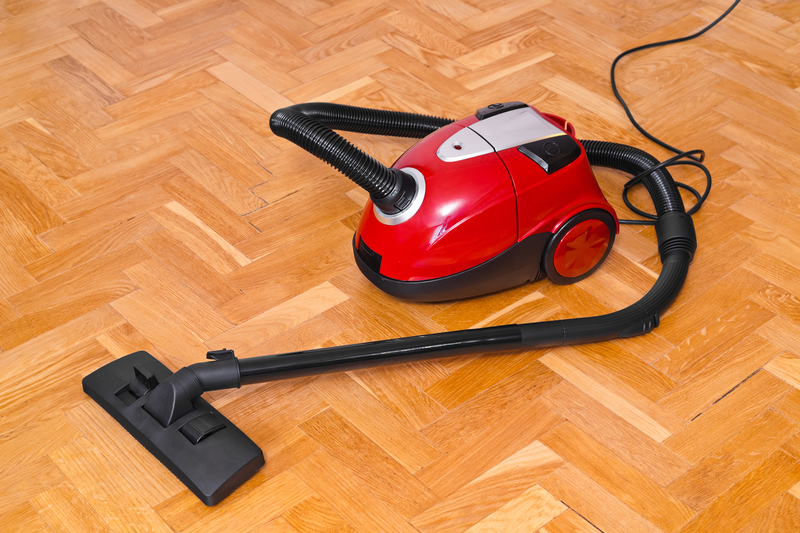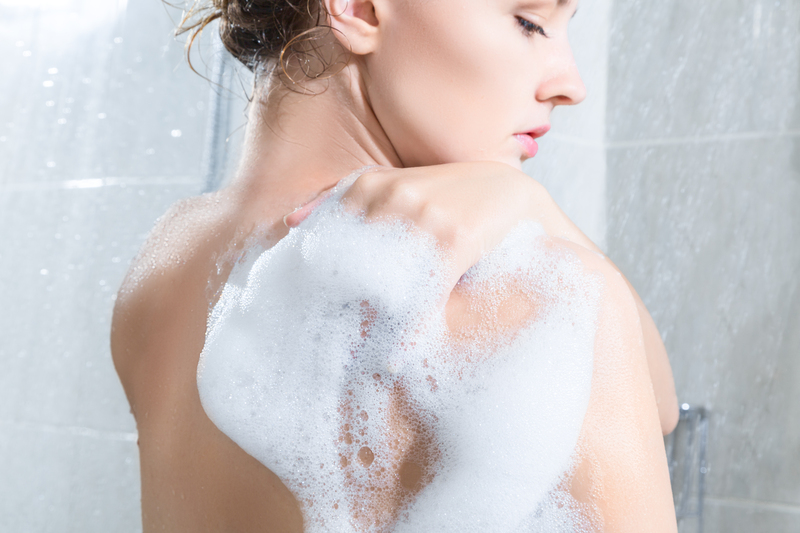Expert Advice for Carpet and Hard Floor Cleanliness
Posted on 21/06/2025
Expert Advice for Carpet and Hard Floor Cleanliness
Maintaining a hygienic and inviting home environment takes more than just a quick sweep or vacuum. Carpet and hard floor cleanliness are essential both for aesthetic appeal and for health, as floors can harbor dust, allergens, and bacteria. Whether you have plush rugs or expansive wooden or tiled surfaces, adopting expert cleaning routines can preserve your flooring and enhance indoor air quality. Below, you'll discover practical, comprehensive guidance on keeping both carpets and hard floors spotless.

Why Focus on Professional Carpet and Hard Floor Cleanliness?
Your floors are among the largest, most utilized surfaces in your home. Over time, dirt, pet dander, food crumbs, and even microscopic organisms can accumulate, impacting everything from the look of your rooms to the well-being of your household members. Here's why prioritizing clean carpet and hard floors is crucial:
- Improved Health: Regular floor cleaning minimizes allergens and pathogens.
- Enhanced Longevity: Proper care prolongs the life of both carpets and hard floors.
- Better Appearance: Clean floors elevate the overall ambiance of your home or office.
- Odor Control: Removing dirt and bacteria eliminates unpleasant smells.
Best Practices for Carpet Cleanliness
When it comes to carpet care, there's more to the job than weekly vacuuming. Use these expert-backed strategies to keep your carpets looking and feeling fresh:
1. Regular Vacuuming: The First Line of Defense
Aim to vacuum high-traffic areas at least twice per week and other sections once weekly. This removes surface debris, dust mites, and pet hairs before they settle deep within the fibers.
- Use a vacuum with a HEPA filter for the best dust and allergen removal.
- Go slowly over each section for effective suction.
- Periodically empty the vacuum bag or canister to maintain efficiency.
2. Spot-Treat Stains Immediately
*Dealing with carpet spills swiftly can prevent stains from becoming permanent.* Use a clean, white cloth to blot out as much of the spill as possible. Avoid rubbing, which spreads the stain. Use a mild carpet cleaner suitable for your fabric. For tough stains like coffee or wine, professionals often recommend a specific enzymatic cleaner.
- Always test cleaning solutions on an inconspicuous patch first.
- Use baking soda for odor absorption before vacuuming.
- Don't over-wet your carpet--excess moisture can lead to mold growth.
3. Schedule Professional Carpet Cleaning
No matter how diligent your efforts, carpets need deep cleaning every 6-12 months. Professional steam or hot water extraction removes embedded dirt, dust, and allergens while rejuvenating the carpet's appearance.
- Choose certified carpet cleaning professionals for the best results.
- Ask for eco-friendly, non-toxic cleaning methods if you have pets or children.
- Allow proper drying time post-cleaning to avoid mildew issues.
4. Carpet Protection Strategies
Consider applying a protective coating after cleaning. This barrier can prevent stains and ease future cleaning tasks.
- Use mats at entrances to trap dirt before it reaches your carpet.
- Implement a "no shoes indoors" policy for ultimate cleanliness.
- Rotate furniture periodically to prevent uneven wear.
Expert Hard Floor Cleaning Tips
From pristine hardwood to glossy tiles, hard floor care requires techniques tailored to your specific flooring type. By following expert recommendations, you'll achieve not only a cleaner look but also a safer, more durable surface.
1. Routine Sweeping and Dusting
Daily sweeping or dust mopping is crucial for all hard floors. Gritty debris can scratch surfaces, especially with wood and laminate flooring.
- Use a soft-bristle broom for hardwood and laminate floors.
- Microfiber dust mops are gentle and very effective.
- Vacuum with hard floor settings for thorough debris removal.
2. Mopping Methods for Different Hard Floors
Different flooring materials call for unique mopping techniques. Here's a quick guide:
- Hardwood: Use a barely damp (not wet) microfiber mop and wood-appropriate cleaner. Avoid excessive water, which can warp the wood.
- Tiles (ceramic or porcelain): Mild detergent with water works well. Ensure grout lines are scrubbed to prevent mold accumulation.
- Laminate: Mop with a little water and a laminate-safe cleaner. Dry quickly to prevent swelling.
- Vinyl: Clean with warm water and a neutral pH cleaner. Vinyl is tough but should never be scratched by abrasive brushes or pads.
3. Addressing Stubborn Hard Floor Stains
For sticky residues and marks:
- For hardwood: Use a manufacturer-recommended cleaner. Avoid acidic substances like vinegar, which can strip finish.
- Tiles: Baking soda paste (baking soda mixed with water) can safely scrub tile stains including grout lines.
- Laminate: Never soak. Spot clean with a damp cloth and gently buff dry.
- Vinyl: Isopropyl alcohol removes marks from shoes or crayons.
4. Protective Measures for Hard Floors
Guard your floors from unnecessary wear:
- Place felt pads under furniture legs.
- Use rugs or mats in heavy-traffic zones and at entrances.
- Wipe up spills immediately to avoid water damage, especially with wood and laminate.
5. Deep Cleaning Hard Floors
Periodic deep cleaning is essential, especially in kitchens and bathrooms:
- Sweep and mop extensively, reaching corners and under movable furniture.
- For tile, consider professional grout cleaning periodically.
- Polish hardwood floors yearly to refresh the finish.
- Laminate and vinyl benefit from gentle but thorough scrubbing with product-recommended solutions.
Expert Questions: Carpet vs. Hard Floor Cleanliness
Homeowners often ask which flooring is "cleaner" or easier to maintain. The answer? It depends on your lifestyle, maintenance routine, and willingness to follow through on regular cleaning. Here are a few expert insights:
- Carpets trap dust and allergens but need regular deep cleaning to remain healthy.
- Hard floors are easier to see dirt on, but spills and scratching must be managed quickly to prevent permanent marks.
- Both surfaces benefit from professional intervention at least once a year.
No matter your flooring, the best hygiene results from consistent, mindful cleaning habits tailored to material type.
Additional Tips for Maintaining Clean Floors Year-Round
To achieve enduring carpet and hard floor cleanliness, integrate these advanced tips:
- Dehumidify: Especially in humid climates or seasons, use a dehumidifier to minimize moisture and reduce mold risk.
- Ventilation: Open windows and doors when possible during and after cleaning to improve drying and reduce cleaning solution fumes.
- Eco-Friendly Practices: Choose green products to limit allergen and toxin exposure, particularly in homes with sensitive occupants.
- Regular Inspections: Check for signs of wear, mold, or pest invasion; early intervention saves money and effort later.
- Pet Owner Advice: Brush pets regularly to limit shedding, and vacuum or mop more frequently to pick up fur and dander.
Common Mistakes to Avoid in Floor Cleaning
- Overwetting carpets or wood floors: This can encourage mold growth or warping.
- Using the wrong cleaning products: Always match your cleaner to the surface. Some ingredients can permanently damage finishes, especially on hardwood.
- Neglecting routine: Skipping regular maintenance leads to harder-to-clean buildup and potentially more expensive restoration.
- Dragging heavy furniture: Always lift rather than drag to prevent scratches and snags.
- Forgetting entry rugs: Entrance mats stop most dirt before it ever reaches your main floors.

When Should You Hire a Professional Cleaning Service?
Even the best home cleaning routines have their limits. Professional carpet and hard floor cleaning services offer deep sanitation, advanced stain removal, and restoration expertise. Consider hiring help if:
- You're dealing with deep-set carpet stains.
- Your hard floors are losing their shine or have visible scratches and scuffs.
- You haven't cleaned your carpets/rugs or floors professionally in over a year.
- You notice persistent odors or allergy symptoms indoors.
A good schedule is every 12 months for routine professional service, more often for homes with children, pets, or allergy sufferers.
Conclusion: The Path to Immaculate Floors
A proactive approach to carpet and hard floor cleanliness preserves not only the beauty of your home but also the health of your family. Remember: frequent, gentle cleaning beats sporadic deep cleans. With the expert tips above, you can ensure every surface underfoot is as fresh and welcoming as possible--from lush, revitalized carpets to gleaming hard floors. Your commitment to floor care is an investment in a cleaner, healthier, and more inviting living space.
For continued success, stay updated with the latest floor maintenance advice from trusted professional sources, and never hesitate to seek expert help for stubborn problems. With just a bit of dedicated effort, beautiful, spotless floors can be the foundation of your home's warmth for years to come.
Latest Posts
Air Quality's Role in Creating Healthier Home and Work Environments
Achieve a Refreshingly Mold-Free Bathroom
A Fresh Perspective on Cleaning Leather Sofas with Steam
Enjoy the Freshness of a Pet Odor-Free Home
Impress with Cleanliness: Battle Grease on Enamel Trays with Ease



